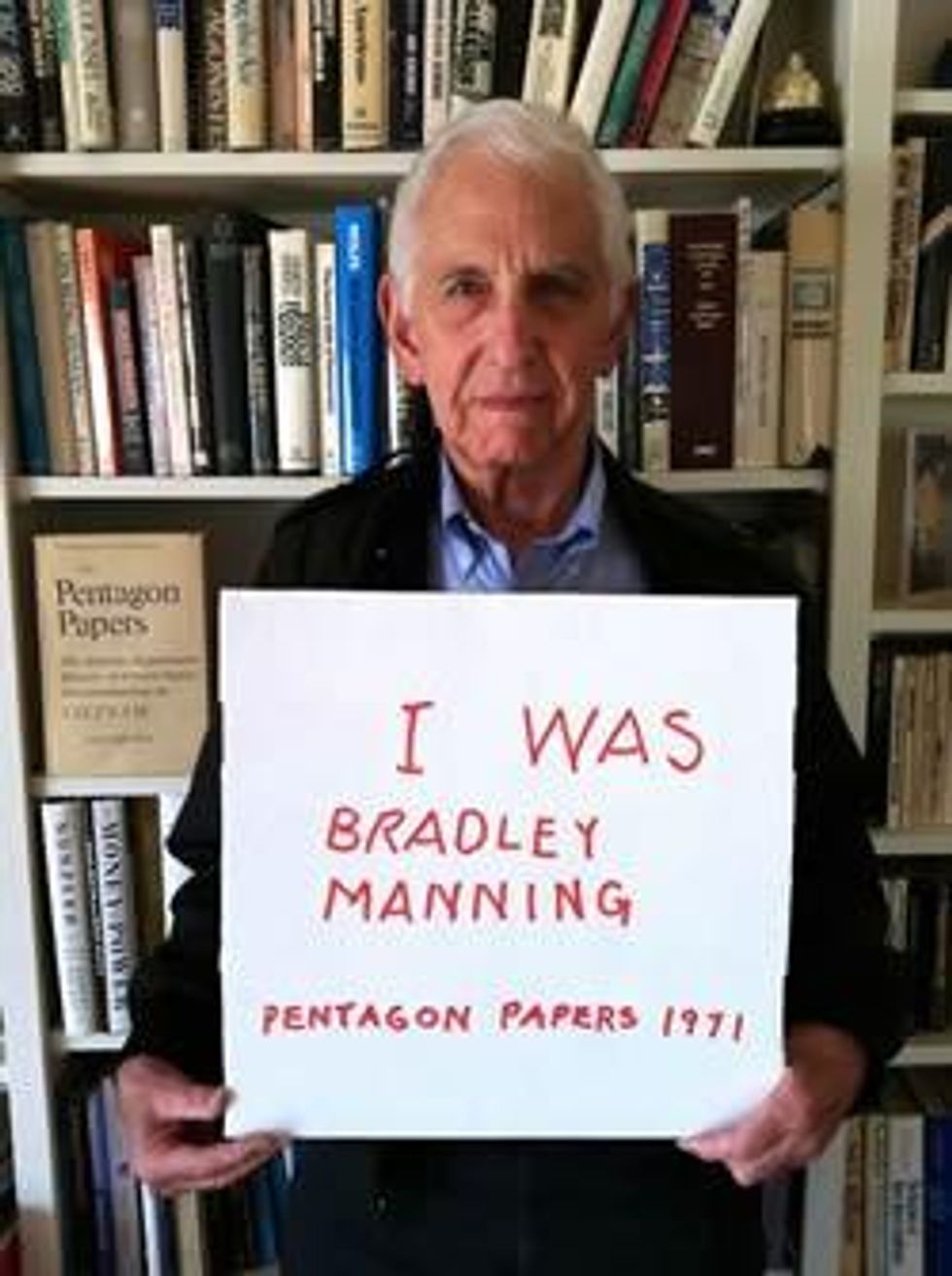PRESENT TENSE : IT HAS BEEN an extraordinary year, full of tragedy and tumult: there's every chance that 2011 will rank with 1968 and 1945 as an era-defining 12 months.
Time magazine has nominated the "protester" as its person of the year, a decision that has generated plenty of ink, but, among the tsunamis and financial crises, it's true that the act of protest has marked the year out as particularly noteworthy.
From Tahrir Square to Puerta del Sol to Zuccotti Park, people have gathered out of a desire for fairness and democracy, giving shape to world events in a way that few could have predicted on Christmas Eve 2010.
But there is one protester who has been somewhat omitted from the narrative of 2011's protests, a protester who has been behind bars since May 2010, and whose act of dissent stands equal to all those who sprung the Arab Spring: Bradley Manning, the alleged leaker of US military and diplomatic secrets to WikiLeaks.
Manning's military hearing began eight days ago at Fort Meade, in Maryland, and the sense of inevitability around the charges of aiding the enemy and violating the Espionage Act makes this trial more about the rights and wrongs of whistleblowing than about determining whether he actually leaked that huge trove of classified information.
Obviously, leaking military and diplomatic secrets can't be considered a wholly praiseworthy activity - sometimes secrets are warranted and justified.
But Manning didn't sell these secrets, he didn't try to profit from them, he didn't try to find a willing recipient in Beijing or Tehran. He sought out Julian Assange and WikiLeaks with the express purpose of exposing what he saw as global-scale wrongdoing.
There are many critics of WikiLeaks and Manning who loudly proclaim that the leaks endangered the lives of military personnel and Afghan and Iraqi informers, and there is of course some justification for these concerns, even if there is no evidence that anyone has been directly harmed by the leaks. But it is revealing, and more than a little perverse, that so many of those critics never seemed remotely exercised about how these illegal wars endangered the lives of military personnel and Afghan and Iraqi citizens in the first place.
Certain forms of endangerment are worse than others, evidently.
For those who believe that Manning is indeed a reckless criminal, consider for a moment the most obvious parallel to this case: that of Daniel Ellsberg and the leaking of the Pentagon papers to the New York Times in 1971. Is there anybody who doesn't think Ellsberg is a hero? Unlikely: he's the patron saint of principled whistleblowing. He risked his liberty to expose and end a heinous war in Vietnam, and faced down the full vindictive might of the Nixon administration and the US establishment in doing so.
Crucially, the secrets Ellsberg was privy to weren't secrets because they might hand an advantage to the enemy, whomever they might be. They were secrets because they concealed law-breaking and dishonesty on the part of the Johnson administration and military. Without such secrecy, the entire facade of endless war in southeast Asia, and by extension everywhere else, became impossible to sustain.
Ellsberg leaked the Pentagon papers because he knew he was right and the state was wrong. He was vilified then and is praised now for exactly that reason. However just his actions seem from this perspective, it was a lonely path he took at the time.
There are many lessons to be learned from the Manning case, but the most pertinent is the one that we are conditioned to most assiduously ignore, however instinctively we realize it to be true: secrecy tends to be corrosive to those who wield it, and unchecked secrecy, the sort of secrecy that Manning so bravely attempted to challenge, is always a sign that the corrosion itself is what's being kept secret.
We might hope that a US president who convinced so many that he stood for change might appreciate someone who tried to engender some real change, but it's unlikely that Manning's principled bravery will be recognized and rewarded until after he has spent many years and maybe decades in prison.
Speaking to the press on Thursday, Ellsberg said, "Bradley Manning no more deserves to face charges of treason than I did. He no more deserves to be called a traitor than I do, because I am not."
Manning's current isolation emphasizes the bravest aspect of his protest: he did it on his own. He didn't have a crowd wearing Guy Fawkes masks for support or an occupied square full of tents to call home. When the history of these unsettled times comes to be written, Manning's lonely protest might well be seen as the most important of all.
